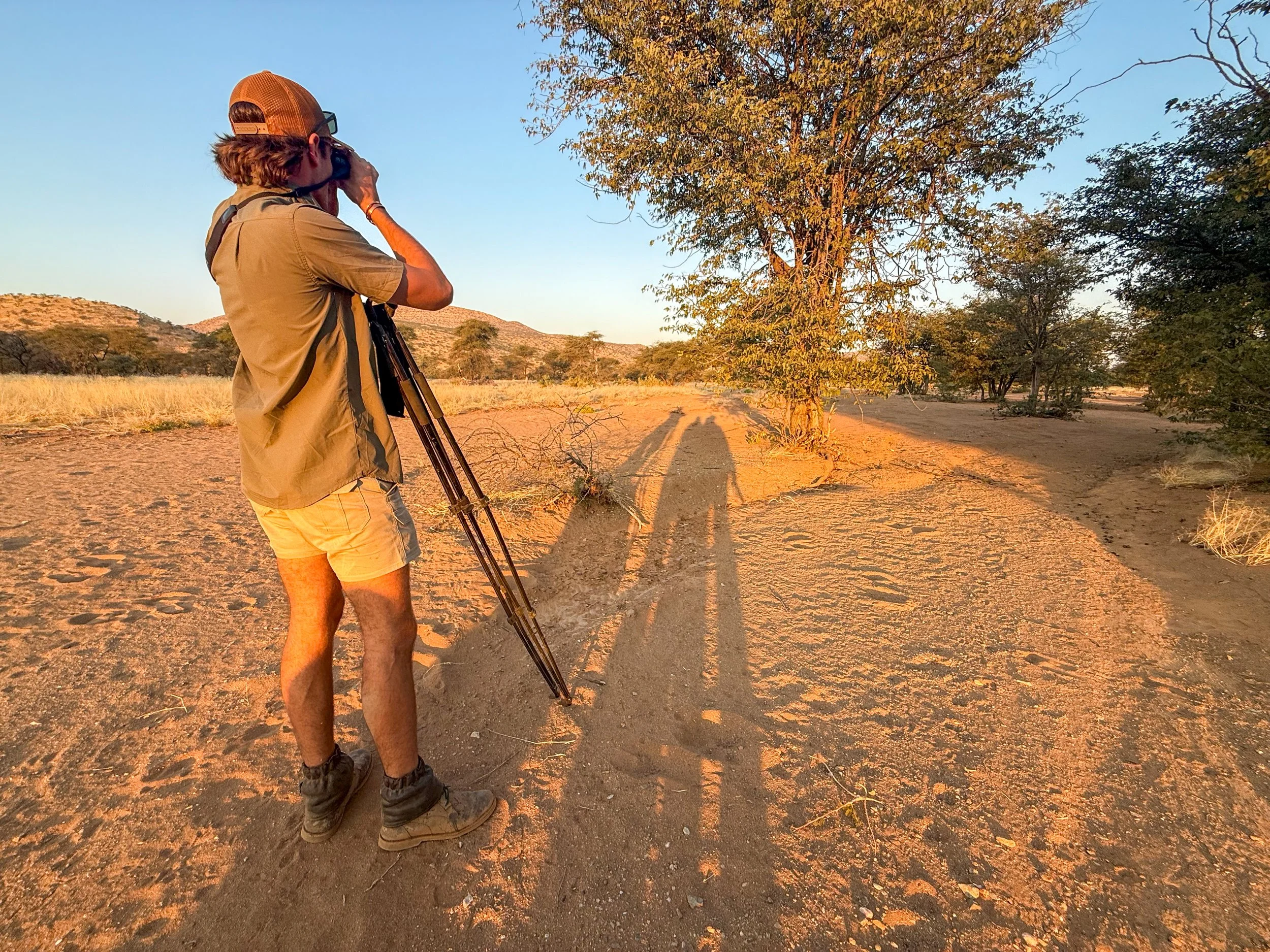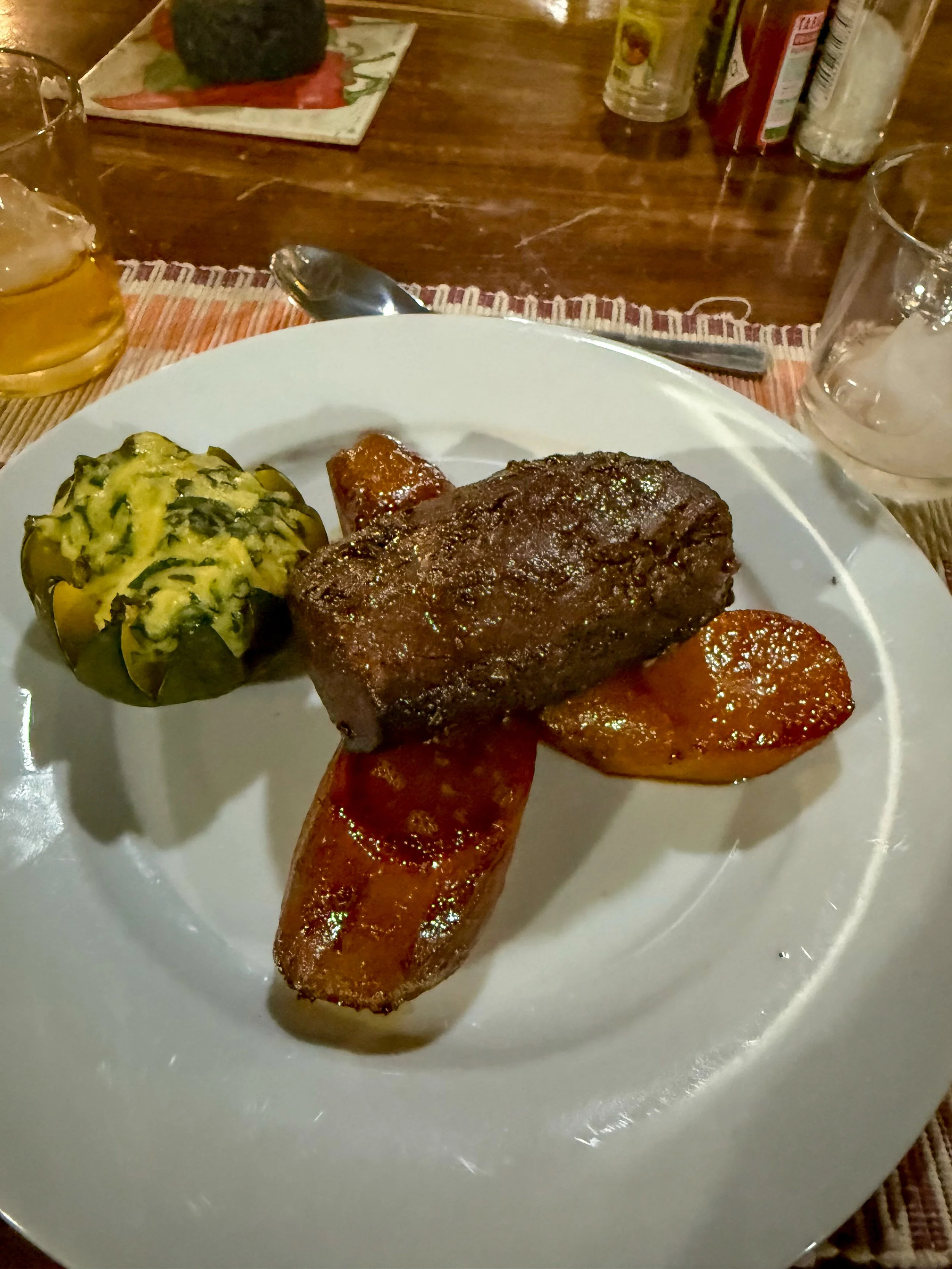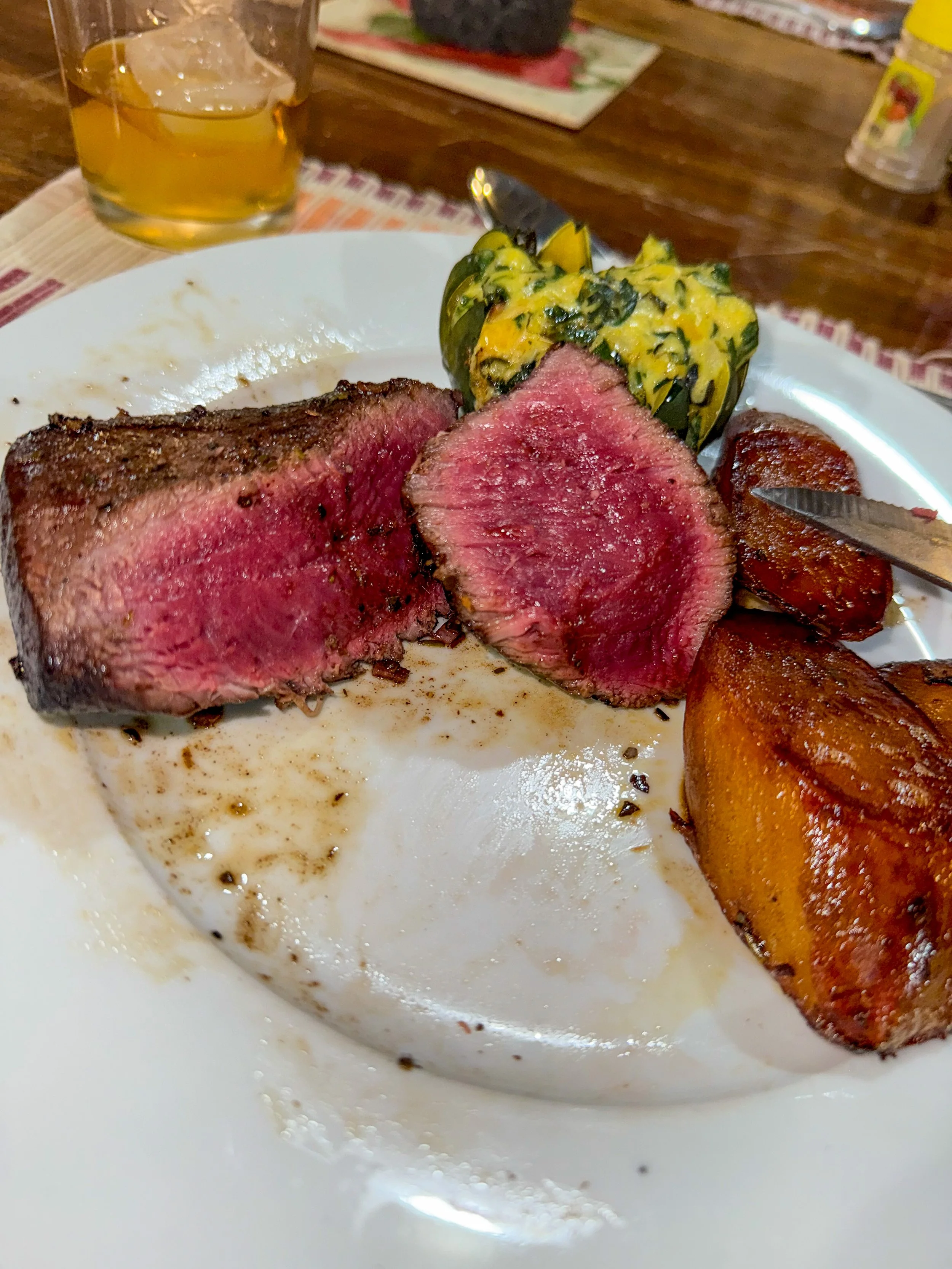Patience, Springboks, and Cotton Candy
My grandmother always told me, patience is a virtue. I didn’t realize how true that would become until I found myself crawling through the African bush, heart racing, waiting for the right springbok ram. Out there, patience isn’t just a saying — it’s the line between an ethical shot and a missed opportunity. And strangely enough, sometimes the payoff smells like cotton candy.
Day Two: First Lessons in Patience
Our second day of safari had already been successful, earlier in the afternoon I had taken a beautiful Hartmann’s zebra. With daylight left, we set out looking for Springbok.
We spotted a herd and planned a stalk up the riverbank to avoid being winded. I had never stalked game before this trip and the rush was unforgettable. My PH led the line, then me, and behind us our two trackers, Tjevia and Tani. When we paused, the trackers glassed the herd while I tried to steady my breathing, heart pounding with adrenaline. Each step I searched for bare sand, reminding myself, quiet steps, stay calm.
From behind a tree, about 300 yards out, we watched the herd. But there were too many eyes - forty springbok in the open with nowhere to hide. My PH called it, and we retreated.
Driving back, we spotted two solid rams that had split from the group. This time it was just me and my PH off the truck. As I got into position, I was grateful for my illuminated reticle, perfect for low light. But I couldn’t line up quickly enough before the ram walked on. With dusk falling, I let the moment pass. It was more important to me that every shot on this trip was a clean, ethical one.
That evening, I carried no disappointment. I already had the zebra, and patience was teaching me that passing was sometimes the better choice.
Day Three: A Long Crawl in the Grass
The next morning we set out again for springbok. Along the way we bumped four Dik Diks - rare to see - and I wondered if it was a sign of good luck.
Sure enough, we soon spotted a herd standing in the open bushman grass. My PH explained that after years of drought, Namibia finally had rain, and where bare sand had been last season now stood tall grasses, some nearly three feet high.
Through his binoculars, my PH picked out a large ram bedded under a tree. He told the trackers to wait with the truck, and the two of us began our stalk.
At first we crouched, using distance as cover. My PH plucked handfuls of grass, holding them in front like a fan to break up our shape. Soon the stalk turned to crawling, sometimes on all fours, sometimes crab-walking, my Q Fix rifle with folded stock slung across my back. At each pause, he glassed while I focused on deep breaths in, deep breaths out, calming the adrenaline and saving steady aim for when the time came.
Finally, he motioned for me to dial to 150 yards and get ready. On the sticks, I found the ram in my scope but the tall grass swallowed his body, leaving only head and horns. I felt uneasy. It wasn’t enough for me to identify my target. I whispered to my PH that I couldn’t take the shot.
We crawled further, but after nearly an hour, the tall grass still blocked a clear view. Reluctantly, we backed out. It was the right call, even if it stung.
The Shot That Counted
Back at the truck, we drove closer. To our surprise, the herd didn’t spook. We seized the moment.
I jumped off, set on the sticks, and dialed for 170 yards. The ram we had been after trailed at the back of the herd. Through my scope I found the dark horizontal line along his body, followed it forward, and settled just above the leg. Squeeze. Shot.
The ram jolted, ran a short distance, and went down. The adrenaline crashed over me. After the long stalks and the waiting, it was done.
My PH and I exchanged fist bumps, both of us knowing how much work and patience had gone into that moment.
Cotton Candy and Reflection
As we approached the ram, the dorsal crest of white hair on his back stood straight up. My PH explained that springbok release a sweet scent when excited or stressed, like cotton candy. I leaned in, curious, and there it was, a strange, sweet smell rising from the gland sacs beneath the hair. Unique, unforgettable, and bittersweet.
He was an old ram, eight or nine years with secondary horn growth. Taking an aged animal, past its prime, felt right. Patience had delivered the opportunity for a clean, ethical shot, and the bush had provided.
Sharing the Meat
Back at camp, Alfons greeted me with his wide smile, just as he had after the zebra. He shook my hand firmly, his crooked eye glinting, only three fingers wrapping around mine. “Thank you for zebra,” he had said before. Now: “Thank you for springbok.” Knowing that much of our wild game meat would be shared through the conservancy, ensuring families in the community received food. Alfons’ gratitude reminded me again how nothing here goes to waste.
From the Field to the Table
The following evening, our camp chef Jackson prepared the springbok for dinner. He cooked it to perfection. Medium rare, tender, and rich with flavor. To my surprise, I loved it even more than zebra. It instantly became my new favorite wild game to eat, a fitting close to the patience and effort that went into the hunt.
Closing
As I replayed the stalk and shot in my mind, my grandmother’s words echoed again: patience is a virtue. In Africa, patience meant more than waiting for a shot; it meant discipline, restraint, and respect for the animal. The reward wasn’t only in the harvest, but in the hours of crawling through grass, the lessons learned about myself, the delicious springbok shared around our campfire, and the people I shared it with. From my PH crouched beside me in the bush to Alfons smiling with meat in his hands.
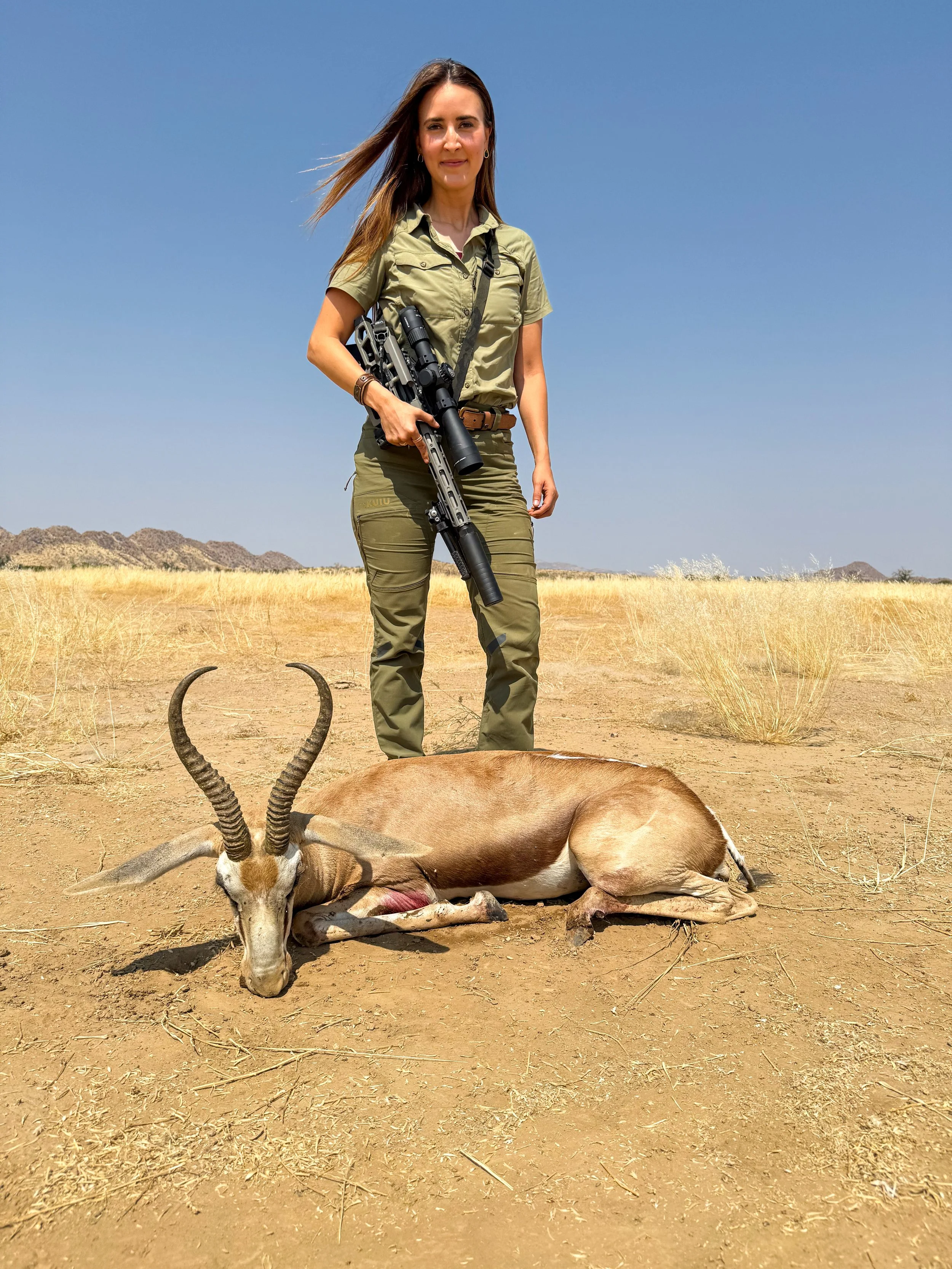
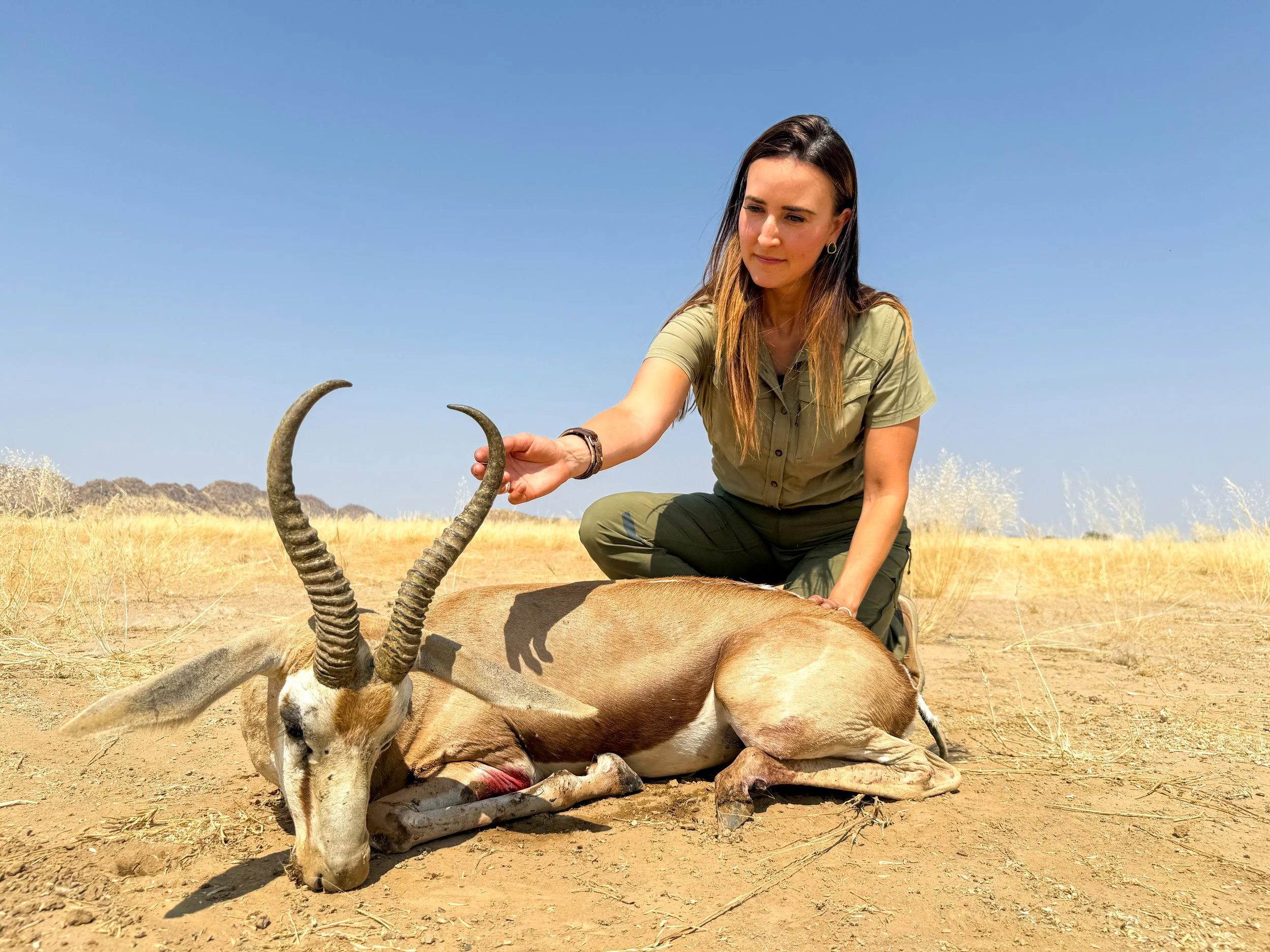

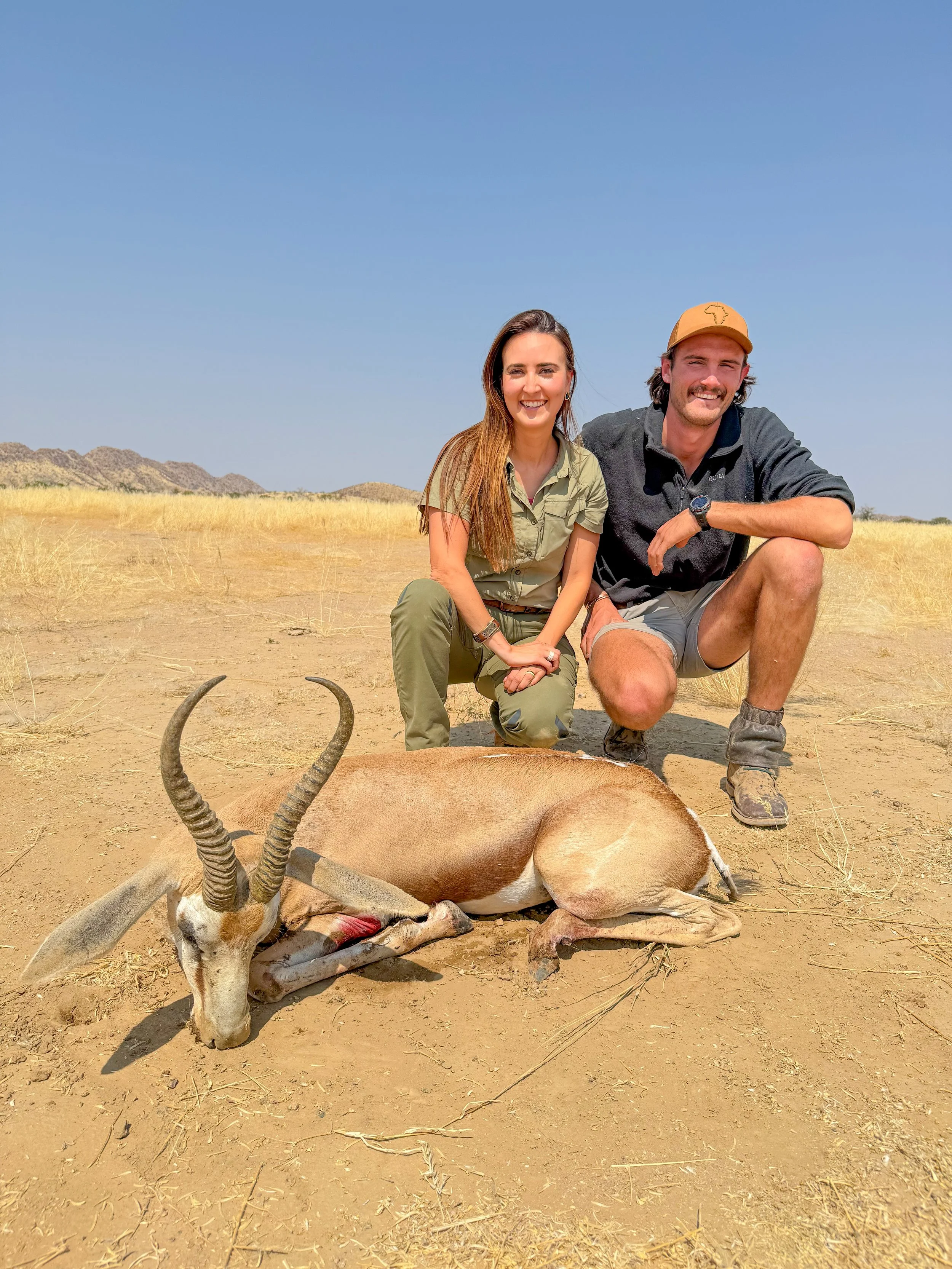
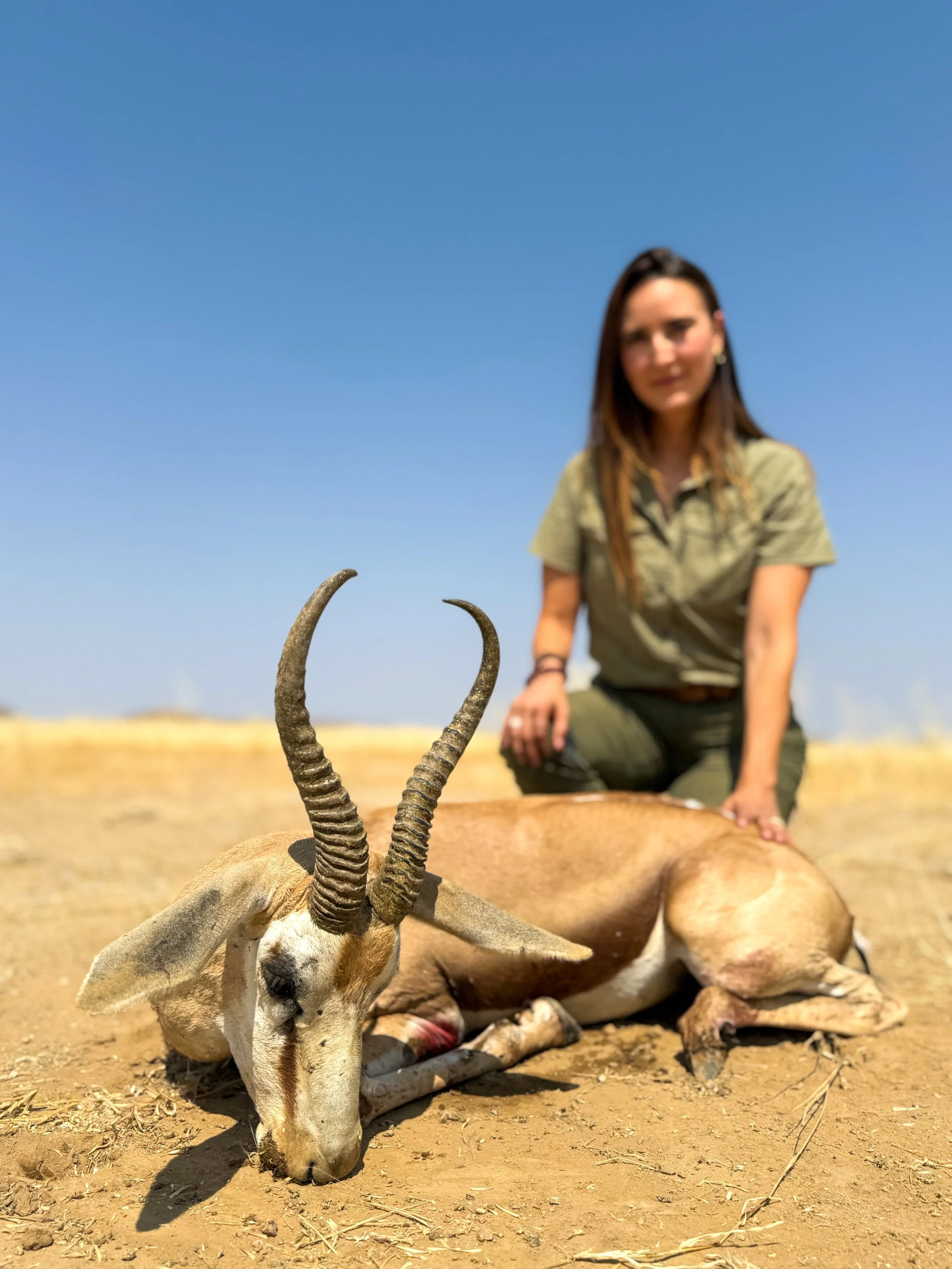
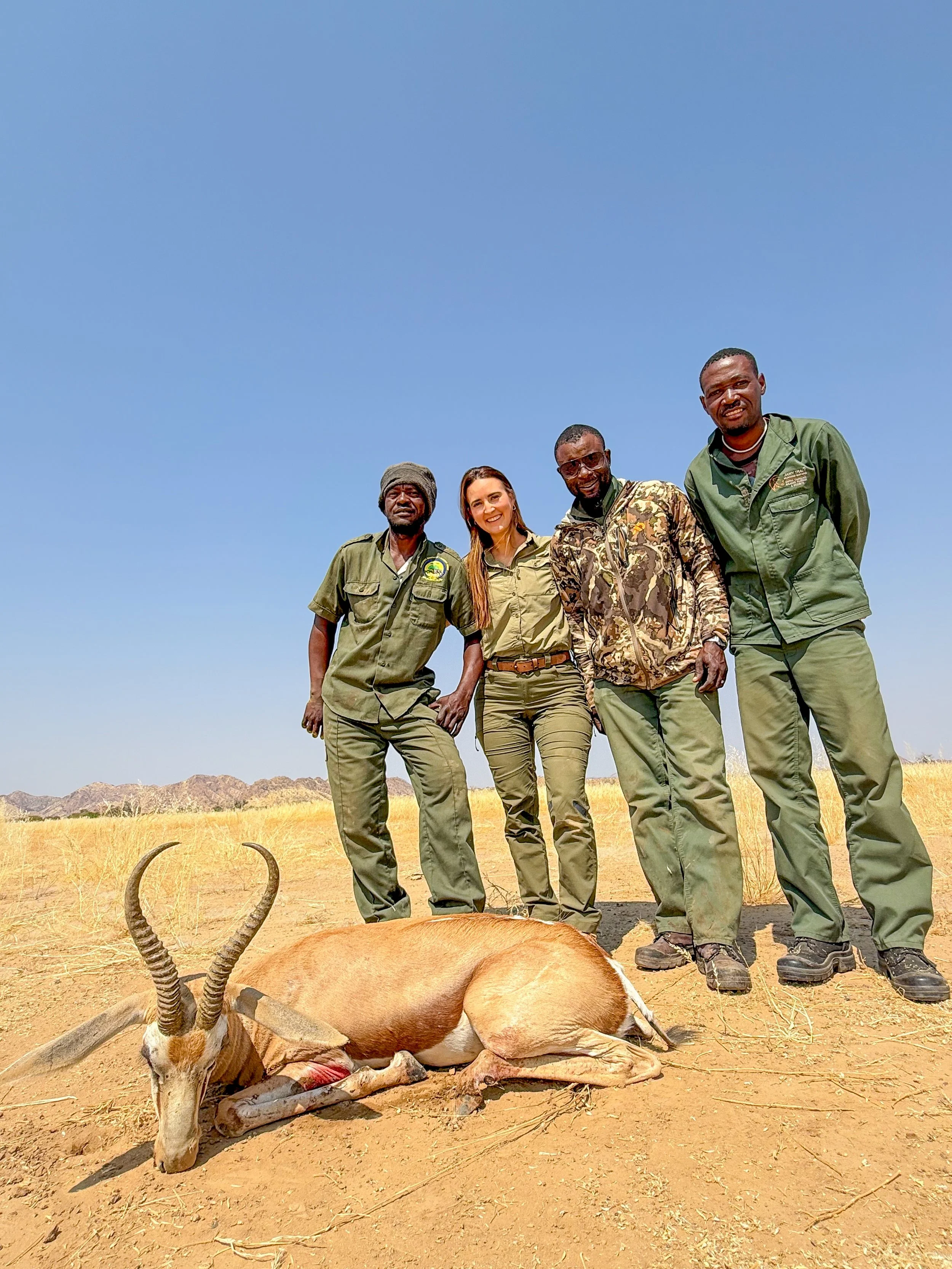
Thanks for following along on my springbok hunt. If you enjoyed this story, subscribe to the blog so you don’t miss the next adventure.

